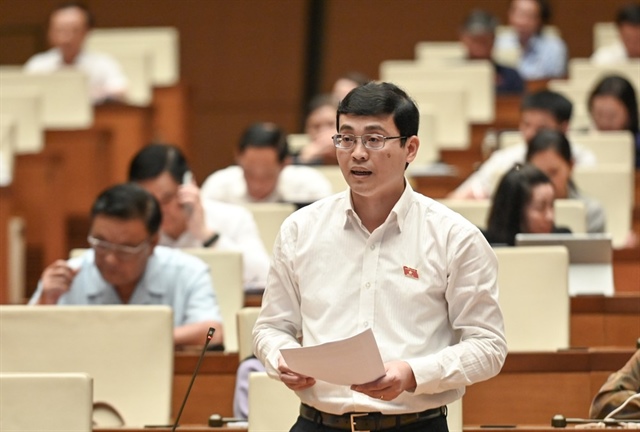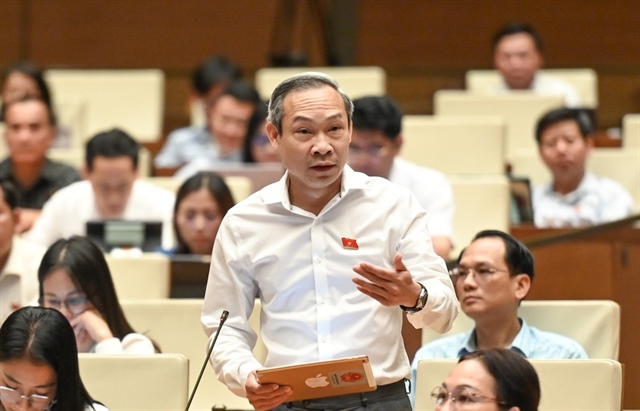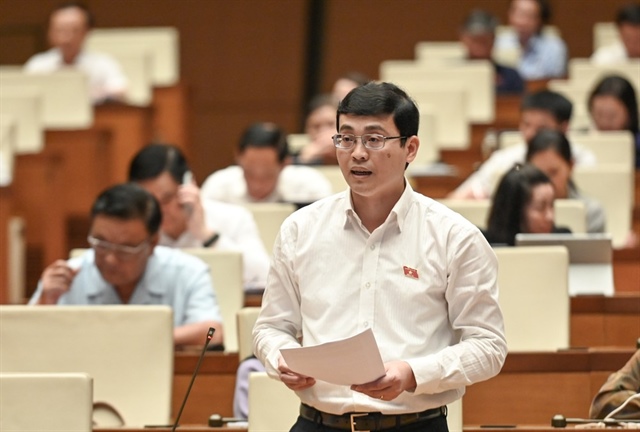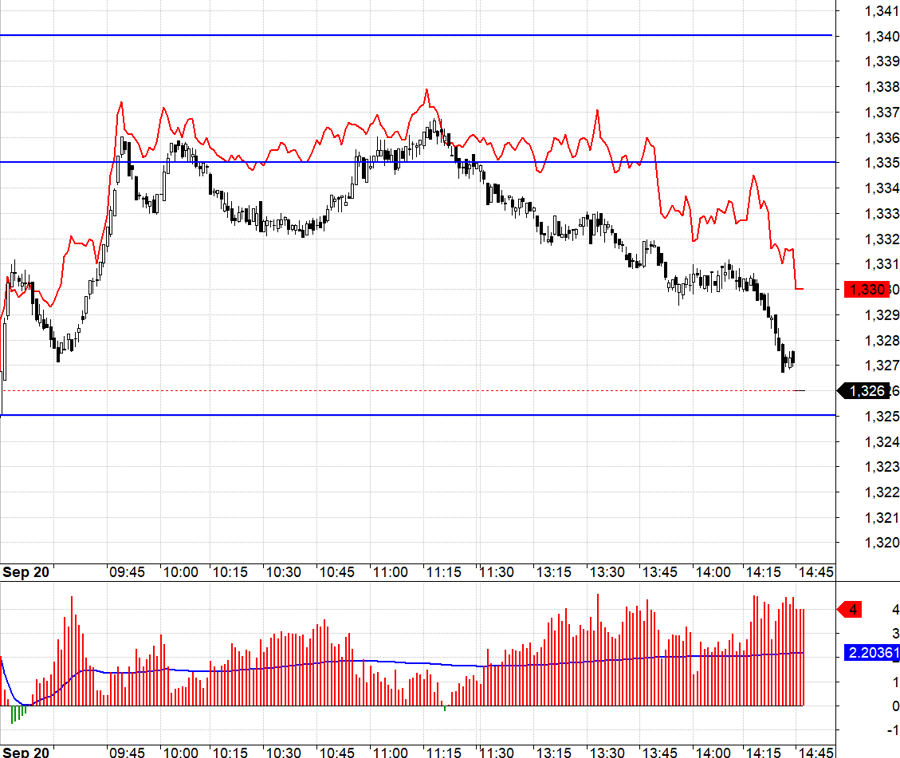During the hall discussion on the Law amending and supplementing a number of articles of the Law on Enterprises, on May 20, Deputy Do Duc Hien (HCMC delegation) proposed that the drafting agency supplement the regulation: The company’s refund of capital contributions to shareholders due to the cancellation of the share offering according to the decision of the competent authority is one of the cases where the company can reduce its charter capital.
Potential for disputes
Specifically, according to Mr. Hien, under the current regulations, when changing its charter capital, the company must register with the managing agency and can reduce its charter capital in certain cases.
However, in reality, there are cases where the company’s share offering results are canceled according to the decision of the managing agency. In this case, the enterprise’s initial registered charter capital is reduced but is not recognized as one of the possible cases of charter capital reduction.

Delegate Do Duc Hien (HCMC). Source: QH |
This leads to difficulties for enterprises in determining the responsibility of registering for changes to the Business Registration Certificate, affecting the implementation of registration procedures, securities custody, and listing of shares…
“If not resolved, it will potentially lead to disputes in the performance of the rights and obligations of shareholders,” emphasized the HCMC delegate.
Is it necessary to mandatorily reduce charter capital when buying back shares from shareholders?
According to Mr. Do Duc Hien, it is also necessary to consider the regulation that forces joint-stock companies to reduce their charter capital when buying back shares from shareholders. The reason is that the current Law on Enterprises requires joint-stock companies to register to reduce their charter capital corresponding to the total par value of the bought-back shares within 10 days from the completion of the payment for the share repurchase.
At the same time, the law stipulates that shares confirming the ownership of bought-back shares must be destroyed immediately after the corresponding shares have been fully paid. This content is also prescribed similarly in the Securities Law.
However, according to Mr. Hien, these regulations are revealing many shortcomings. Specifically, the repurchase of shares for the purpose of reducing charter capital is one of several cases where enterprises buy back shares from shareholders.
“Forcing a reduction in charter capital after buying back shares prevents the company from maintaining treasury shares,” said Mr. Hien, adding that this is a necessary tool in the management and operation of enterprises.
On the other hand, share buybacks are also an important financial solution for joint-stock companies, especially in cases where the company’s share price falls in the trading market compared to its actual value due to the impact of some abnormal factors.
As evidence, the HCMC representative said that recently, due to the impact of the US’s new tax policy, many companies wanted to buy back their own shares to preserve the enterprise’s asset value and could sell them when the market stabilizes but could not do so.
In addition, when amending the Securities Law in the law amending 9 laws at the previous session, the National Assembly allowed companies not to have to go through the procedure of reducing charter capital for the number of shares bought back by the company from employees according to the company’s regulations on issuing shares to employees.
The laws of most countries, especially emerging economies with economic, financial, and market conditions similar to Vietnam (such as Thailand, Indonesia, and China), do not force companies to reduce their charter capital when buying back shares from shareholders. Therefore, the current regulation leads to a decrease in the attractiveness and competitiveness of Vietnam’s financial and capital market in the region.

Delegate Phan Duc Hieu (Thai Binh). Source: QH |
Subsequently, Delegate Phan Duc Hieu (Thai Binh) opined that the above proposal of Delegate Do Duc Hien would help reduce administrative procedures related to charter capital reduction registration. However, according to Mr. Hieu, when contributing capital to the establishment of a joint-stock company that is not publicly held, shareholders want to maintain an ownership ratio to exercise their rights and dominate operations.
“The Law on Enterprises also stipulates the priority of shareholders to buy when the enterprise offers to sell shares. If this right is not guaranteed, a number of shares will be bought by outside shareholders, leading to a takeover,” said Mr. Hieu.
According to Delegate Hieu, if the drafting agency accepts this opinion and makes a supplement, it is necessary to design additional regulations to ensure the priority right to buy shares of existing shareholders, ensuring the ratio in the case of selling treasury shares (treasury shares) to avoid abuse of power.
NGUYEN THAO
– 09:12 21/05/2025















